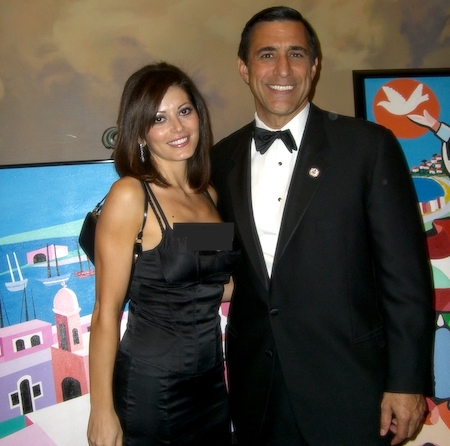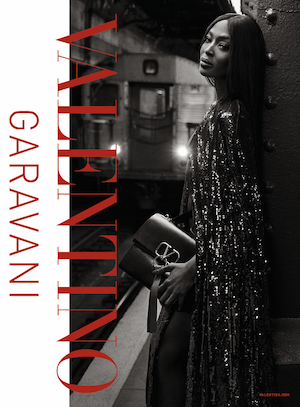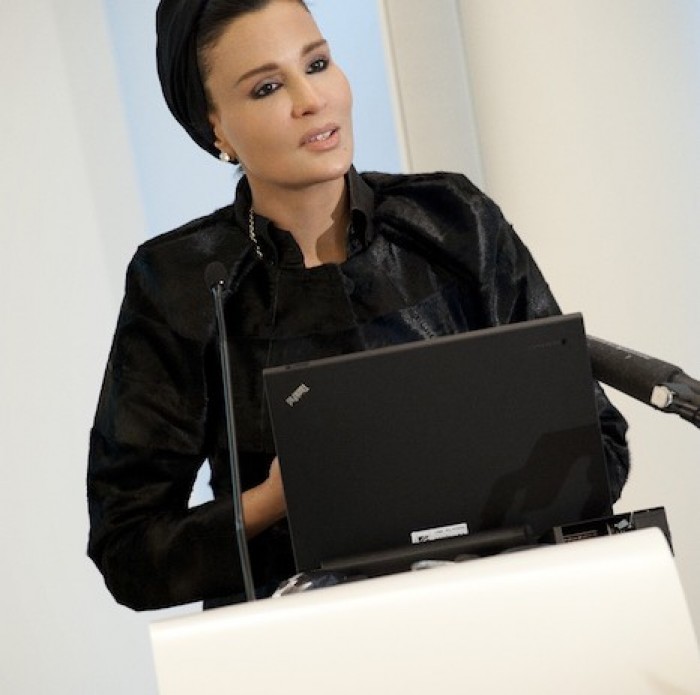Success Stories
Darrell Issa : A U.S. Congressman With Deep Love for Lebanon
September 10, 2008
Elected to Congress in 2000, American politician Darrell Issa is a Republican member of the United States House of Representatives, representing the 49th district of California. Congressman Issa was born in Cleveland, Ohio. His mother is of German descent and his father is of Lebanese descent. He spent a number of years in the U.S. Army, leaving in 1980 with the rank of Captain. He later moved into the business world running his own consumer electronics company, Directed Electronics Incorporated, most famous for its Viper car-alarm. Directed Electronics is ranked as one of North America's largest aftermarket automotive electronics manufacturer, making Issa one of the richest men in Congress.
Today, Congressman Issa resides in Vista, California with his wife Kathy and son William. One of only five Lebanese Americans in Congress, Today’s Outlook met with the 54-year-old businessman turned congressman to assess his views on certain political issues and discuss the impact of his Lebanese roots on his political stance and upbringing.
You have been serving in Congress for over seven years now, what do you feel has been your greatest accomplishment and why?
I don’t think that you can really claim accomplishments. I’ve certainly learned a lot and while I didn’t think I was initially entering Congress to be involved with the issues of the Middle East, events including September 11 have somewhat required me to be more involved. So, I think I have most definitely learned a lot, even though the conditions in the Middle East are not necessarily better than they were when I first entered government.
Do you and California Governor Arnold Schwarzenegger see eye-to-eye on immigration, health care and taxes?
Well, he’s about an inch shorter than I am! (laughs) We see eye-to-eye more often than not; do we agree on the problems, absolutely; do we agree on at least part of the solution, absolutely. But I don’t think any two politicians have exactly the same ideas about all issues.
Do you feel you will have to change your campaign strategy as a result of the upcoming presidential election?
No! I would hope that the presidents change theirs! (laughs) Although my re-election is never assured, I feel that it is likely at this point; I’m sufficiently popular that I don’t expect a major challenge.
You have traveled to the Middle East many times, with much of the focus on trying to promote peace and improve relations between Syria and Lebanon. What do you think your most significant contribution to the continuing peace process has been and how do you feel that others can continue to contribute to that?
Well, these are tough times; we just got through a presidential election in Lebanon that was delayed and flawed. It’s still too early to see how the new President will interface, not just with the Prime Minister, but with the world at large. Regarding the parliamentary elections and for the March 14th wing, clearly dealing with a speaker who has stretched the rules during the process has not been helpful. This can only mean that Lebanon is going to continue to have internal conflicts. I believe that when it comes to the external conflicts, Syria must understand that its role with Lebanon is not as a dominating force, nor as a protector that provides security while also milking the economy. Syria does not respect Lebanon’s borders the way I believe it should. Furthermore, the absence of Syria has led to the need for Lebanese to do things they weren’t previously doing such as dealing with the Palestinian camps – it’s now the Lebanese armed forces that has to secure those camps so this transition, although it’s in the right direction, has not been without some challenges that even continue today.
What is your stand on how effective the Arab and Lebanese lobbying effort is in pursuing its agenda to gain greater understanding and support for its interests? Where do you feel the lobby is falling short?
The Lebanese lobby is quite effective. The President, along with his Cabinet Officers, knows first hand a lot of the major facts on the ground in Lebanon; he understands the relationship that the Lebanese leaders have with each other, with Syria and with other countries. Such an understanding is the sign of a successful lobby. Certainly the aid that goes to Lebanon, particularly after the July war, indicates understanding that it wasn’t Lebanon’s fault and that Lebanon was a victim and so again, that’s a lobbying success. The kind of engagement that would assure lasting peace and security with Syria as well as with Israel is still a long way off, but it should be the goal – to engage policy makers to create those two very different stabilities. Obviously Iran’s funding of Hezbollah is in the middle of it all; Syria’s continued intervention plays a role; and also Israel’s lack of respect for the Lebanese government, the Lebanese armed forces and the safety of Lebanese who are non-combatants. So these are the areas I think we have to keep working on.
Tell us a little bit about your family connection to Lebanon. How much of an impact did your Lebanese heritage have on your upbringing and how has it affected your politics today?
Well, like all of us who came during the chaos and famine, we broke our ties with Lebanon when we came here; we sought to become American citizens; join the military; speak without an accent, and then for most of us, wanting to reconnect to our homeland became a need. It was my father, who was born in the U.S., and his desire to reconnect late in life and my desire to reconnect when I was still a teenager that has driven us to get to know our family, visit the place of our ancestors and try to have at least a good knowledge, not just of the food and maybe a little music, but also of the underlying culture that makes the people special.
Do you speak any Arabic?
I could say shway, but no, I don’t -- just kebbe. That is one of the sad things that once lost it’s just as hard for us to get back as anyone else.
What are your hobbies?
I fly. I’ve been a private pilot for 30 years and I enjoy that whenever I get a chance. I ski and now my son wants to teach me snowboarding so that will be a new hobby and I am also fond of water sports.
What is your favorite escape from the world of politics?
My favorite escape is Lake Tahoe and jet skiing.
What is your fondest childhood memory?
That’s a very good question. I think it would be the visits we had with the family where we went on trips to the old country; we would go to Downtown Cleveland to my uncle’s house, it’s a very old house and my aunt would make wonderful Lebanese food. She’s very much an old-world all-in-black lady. I used to think that if you came from Lebanon you had to wear all-black and then we also had another aunt that lived out in the country and we’d go to the farm and we got to pick our own take-home fruit and vegetables, so I think those are two of my fondest family-related memories.
Is there any message that you would like to send to our readers in the Middle East?
Probably the hardest thing, for the whole Arab world and particularly for Lebanese, is to realize that most of the solutions are in your own hands. Unfortunately the view that ‘America must do or it can’t happen’ is all too often adopted. Certainly we have a role, but so often it’s the rest of the world waiting for the United States to do something and then complaining when we do. The truth is, we are much better at helping a country that is well along the way in fighting for what it wants in terms of justice than we are at coming up with the justice. For example, if Iraq had had a revolt, and we had entered on the side of the rebels, the whole transition would have been comparatively easier; we would have known who we were backing; we would have known what they were against; we would have stood for something that represented the will of the people. The sectarian violence that’s going on in Iraq today was predictable because there had not been unity of the people, only oppression of the people. Lebanon is very different but somewhat the same; 17 major confessionals have to decide how they are going to share power, share opportunity and live together before the United States can play a role. We can never play an effective role until that portion, including the Shiites in the South, has come to a reasonable alliance about how their wealth and opportunity will be allocated.
































